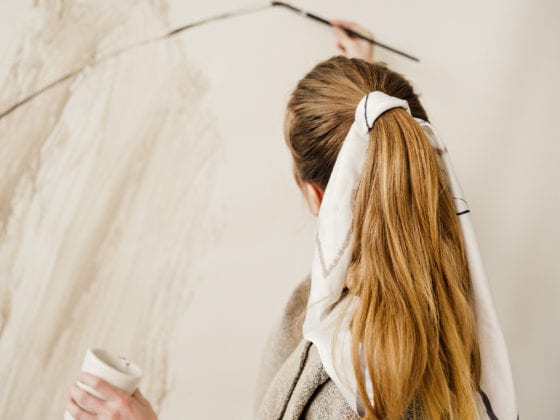Author Parker Palmer wrote, “The more you know about another person’s story, the less possible it is to see that person as your enemy.”
Comparison begins with a judgment of yourself. Then, it bleeds into judgment of other people. Comparison thrives on oversimplifications. It feeds on distant judgments and half-truths.
Comparison allows us to create an entire narrative from the scraps of someone’s story that they may wear on their sleeves (or on their social media feeds). Our perception of someone is never a truly accurate representation of who they are. It is based on the beliefs we have internalized of what is good and desirable versus what is bad or unworthy.
Our perception of someone is never a truly accurate representation of who they are.
When we allow our worth to be dictated by comparison, we see the world around us through the same sharp and judgmental lens. We begin to measure everyone against our own internalized beliefs about beauty and success. These beliefs compound on themselves, growing into a measurement of our worth.
Our relationships and friendships are measured against a view of objective beauty. Our career success is dictated by how good we feel about ourselves. We start to believe lies about our worth that are crafted out of fluid and subjective standards.
There is no such thing as objective beauty or objective success. The ideas we judge are based on surface-level interactions and fleeting encounters. When we boil down our interactions and perceptions of others to variables that can be measured, we oversimplify our humanity, which is complex by nature.
It is extremely difficult to hate someone when we are up close. It is difficult to write someone off when we are intimately involved in their lives, when we understand the root of their quirks or the history that has amounted to the person they are in the present moment.
It is difficult to write someone off when we are intimately involved in their lives.
The strict standards we hold over ourselves and others will only lead to jealousy, envy and cycles of resentment. These standards are not measures of success. They are lies that we allow to determine our worth.
Just because someone achieved something you hoped to or got something that you wanted does not mean that they are more beautiful, successful or intelligent. We need to redefine our definitions of these words, but even more than that, we need to get rid of the idea of “objective” anything as it relates to character, attractiveness or our ability to make a difference.
If we are honest and attentive, then we will find that one person’s view of success is very different from another’s. We will learn that some people find certain characteristics breathtakingly beautiful, while other people find a completely different characteristic enthralling.
The good news is comparison is a common struggle in our hyper-connected, social media-driven world. The very thing that keeps us isolated and separated also has the capacity to bring restoration. The bad news is that comparison is not going to disappear just because we know it is a harmful and dangerous vice.
We need to get rid of the idea of “objective” anything as it relates to character, attractiveness or our ability to make a difference.
At the root of our compulsive need to compare is a lack of self-assurance. By critiquing everyone else, we can build a defense that keeps us hidden and safe from the need to tackle the hard work of self-acceptance.
If we commit to a compassionate view of ourselves, we will also begin to grow our ability to see others through the same lens of love and acceptance. When we practice seeing ourselves through the eyes of love, we will more easily be able to see others through the same lens. We will be able to see the good and the bad parts—the darkness and the light of our humanity. We will be able to love our complexities without judgment or shame.
It takes time and the intentional unraveling of false beliefs to unlearn comparison. The more we choose to embark on this journey, the more we will find that we were never alone even in the deepest moments of self-doubt. We can turn to each other in solidarity and choose to love, encourage and support each other through the inevitable moments of doubt. We can cultivate a rich inner life of acceptance and grace that overflows to everyone we come in contact with, carving out space for our differences to make themselves known without shame.
Have you ever believed the lie of “objective” success or beauty? How did it limit your perspective and lead to comparison with others?
Image via Silke Labson, Darling Issue No. 16











